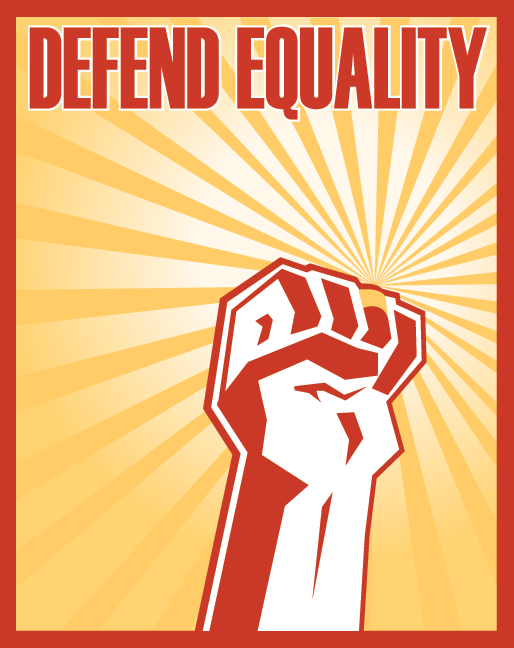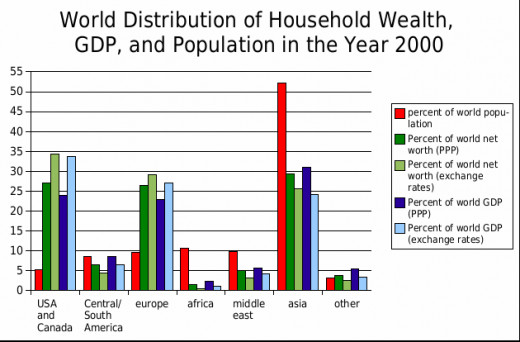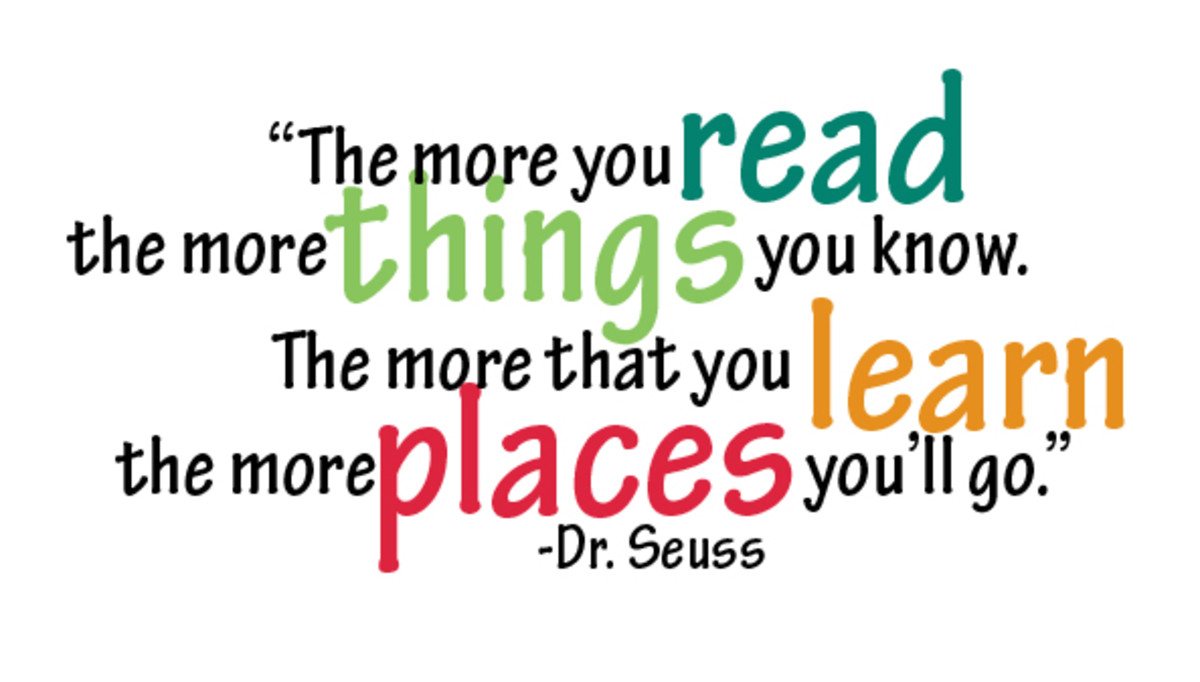Distributive Justice - what is the state's role in distribution of resources?
Strict Equality: Everyone should receive the same material goods and services
Egalitarianism: Recognises this equality but is less strict. People receive resources and can use them to prosper, therefore creating inequality after the original position of equality.
Need: 'From each according to ability, to each according to need' ~ Marx
Desert: People are rewarded according to effort, compensation, contribution, and virtue
When thinking about the idea of justice, the first thing people may think of is equality. However, this isn't always the way forward in creating a just and fair society. It is Marx's view that resources should be distributed according to need and this offers many advantages because it means that those with abilities significantly lower than others can receive the extra support they need in order to be able to give back to the community. It ensures equality of opportunity. However, there is a risk of a loss of motivation which could be accounted for by other theories of justice such as desert. It also presents issues when trying to determine what exactly people do need as this is subjective according to each society. If we begin with everything we need, where do we go from there? There is nothing in this theory to help us advance as a society. Marx's account of distributive justice does not provide a convenient or convincing argument and fails to account for natural progression within society.
Philosophers and their view on jusitce
Philosopher
| Position
| Comments
|
|---|---|---|
Ronald Dworkin
| Wrong to make people equal
| Equal redistribution is not compatible with personal responsibility
|
Aristotle
| Desert
| People receive what they deserve but with a basic level of resources provided by state
|
John Locke
| Desert
| No redistribution. The state's role is minimal
|
Marx & Engels
| Need
| The state should provide for human functions
|
John Rawls
| Egalitarian (ish)
| Equality of opportunity but with allowance of the creation of inequalities
|

Strict Equality
The issue with strict equality is that people have different preferences and needs, so it doesn't really provide any just basis for equality at all. Imagine everyone had the same income. To some people, who may naturally be inclined to live the frugal lifestyle, that income would be more than enough. To others it is simply not enough to be able to provide for their family. Now if we took the term literally to mean that everyone received all the same material goods, life would be the same for everyone. What about dentists? They require different resources to say, a musician.
This idea of justice oppresses people, because in order to maintain it, there would have to be zero allowance of freedom in terms of what people do with the resources they receive. Otherwise inequalities would quickly emerge and the theory would disintegrate.
Natural differences in people are not treated fairly, or arguably, equally. Someone with a disability surely deserves more help than a perfectly able bodied individual.
Moreover, it doesn't exactly provide equality of opportunity because some resources are considered useless to certain individuals with certain needs. For an individual to be happy and to feel able to achieve, they need the opportunity to pursue that. So justice isn't about equality of resources, but about equality of opportunity.
What do you think?
Should we get what we deserve, and only what we deserve?

Desert
John Locke proposed that the sole role of the state is to protect life, liberty and property. Redistribution doesn't come anywhere into that role. So, leaving people to it, they receive what they work for, and so they receive what they deserve.
There are four parts to the desert theory of justice:
- Effort - People are rewarded in proportion with the effort they make on their work
- Compensation - All costs someone incurs through their work, not just the effort, should be rewarded.
- Contribution - The value of contribution that the individual makes on social productivity determines what they deserve.
- Virtue - The virtuous are rewarded, as suggested by Aristotle
There are a LOT of issues with this theory however.
First, those first two theories listed above reward everyone who works, supposedly including those who are working towards evil. This is quite clearly unjust.
Secondly, it's difficult to determine what counts as more effort and contribution. There are examples of this in modern life. A footballer has more of an effect on people at any one time than a nurse does, and in turn they are rewarded more for their efforts than that nurse. But is this just? It can be argued that a nurse has a much more positive influence on society and lifestyle, you may agree.
Another issue is that not everyone is capable of making these valuable contributions. Sure, many may just be lazy and so don't receive as much as others, which is fine, but many individuals simply cannot work due to health or mental conditions. Where does this leave them? Without help apparently.
What if I win a competition without putting any effort towards it at all, do I deserve the reward then?

You've just been appointed ruler of the universe, quite abruptly and unexpectedly. Which principle of justice do you rule according to? Make your decision wisely!
Need
Marx once famously wrote: 'from each according to his ability, to each according to his need.'
This doesn't necessarily create equality because people have different needs, they therefore receive different levels of and types of resources. Any excess resources that are not needed by the particular individual are redistributed.
But once again, issues are presented. For starters, there are some natural needs that cannot be provided for the state... sex, for example. Should the state run prostitution? I don't think so. There is also the problem of needs inflation, what with the growth of society. This is why it is very important to make the distinction between needs and wants. Supposedly, needs are objective while desires are subjective, but the line between the two is very thin and it is quite easy to find yourself on the wrong side of that line.
Another issue is that people may end up receiving what they don't deserve. For instance, an individual who has been chain smoking for the past 40 years may require NHS treatment, but does he deserve this? It's difficult to say and all depends on your moral values.
A great activity to understand the veil of ignorance
Justice as fairness
John Rawls comes the closest to the idea of justice in my opinion. He ensures that people are born with equal opportunity, but recognises that inequalities are not only inevitable, but necessary for the development of society. However, to avoid too much inequality, he proposes the difference principle, whereby he argues that differences in equality are allowed, providing those differences benefit everyone. So higher tax rates for the richer would be justified and necessary according to Rawls.
You may be aware already of his famous thought experiment in which he places the individual behind a veil of ignorance. Well, it is through this thought experiment that Rawls came up with his theory of justice. However, you can't deny that he was heavily influenced by the context in which he lived, which was of course a very liberal society, so he had to tailor his philosophies to his audience, otherwise he would not be as highly a considered philosopher as he is today. Cheeky.
Despite this though, his theory does hold some weight. When place in what he calls 'the original position' where human beings have no idea who the are, where they come from, what their race, sexuality, disability, value is, they would choose a set of rules, a theory of justice, that would benefit everyone. This is because they make emerge from this veil living in absolute poverty so they want to make themselves as safe as possible.
But this isn't the end, not yet.

Meet Robert Nozick
Nozick is with us now to argue that redistribution of wealth, ie taxation, is completely unjust as it reduces us to slaves.
He argues this through the tale of the slave, which I won't go into now as this has turned into a lengthy hub already. But essentially, unpaid labour is slavery, taking away payment through tax means a percentage of labour becomes unpaid, therefore, taxation is slavery.
So his theory of justice is that distribution shouldn't be regarded in relation to need or equality etc, but instead it's justness depends entirely on how it came about. He argues for three principles:
- Justice in acquisition
- Justice in transfer
- Rectification of justice
So if a certain unnamed famous basketball player were to claim 20 pence from every ticket sale of his match, and 20,000 people showed up, freely giving that 20 pence to him, on top of the original price, he would be justified in receiving however much money he would gain from that.
The Tale of the Slave - Explained
Now that you've read the four different theories of justice, and discovered a few of the criticisms, what do you think?
Do you agree with me in taking the standpoint of John Rawls?
If not, lets debate!
If you have anything to add in the comments below please do.








